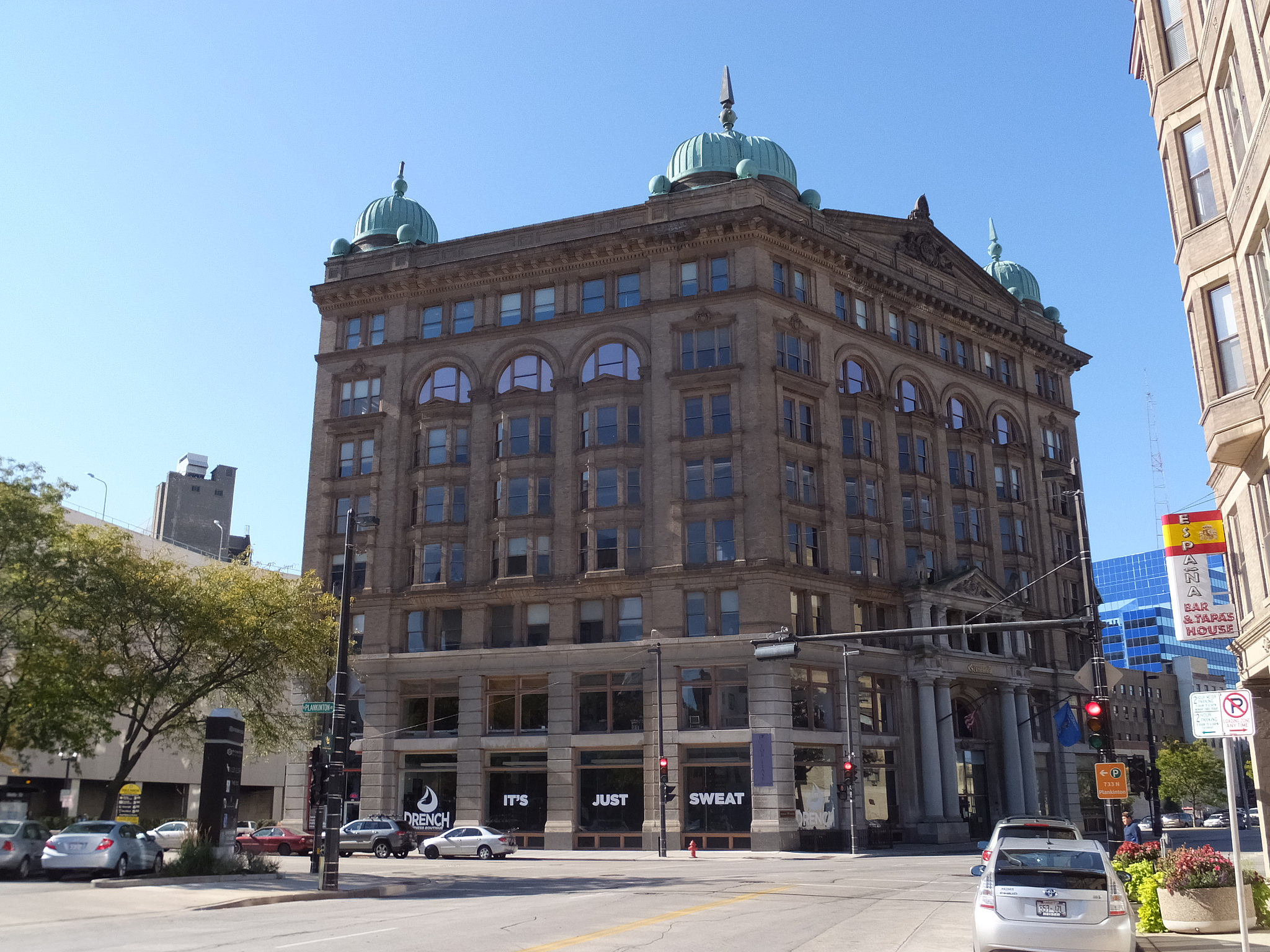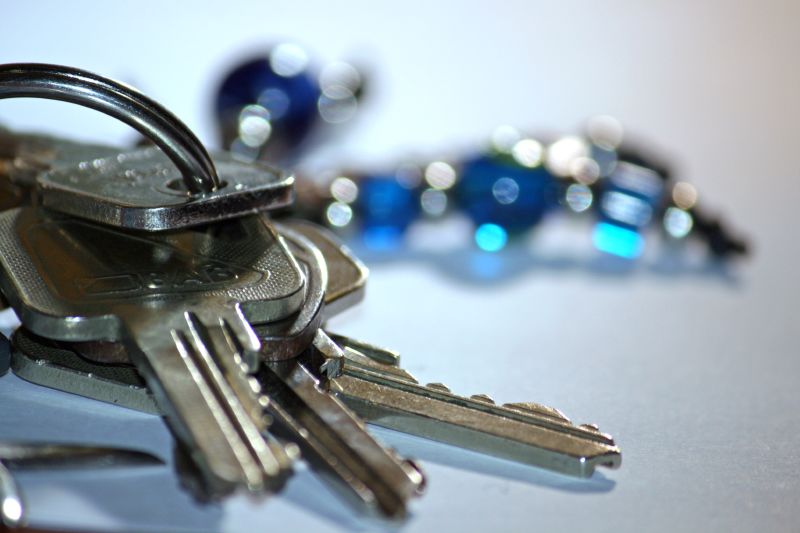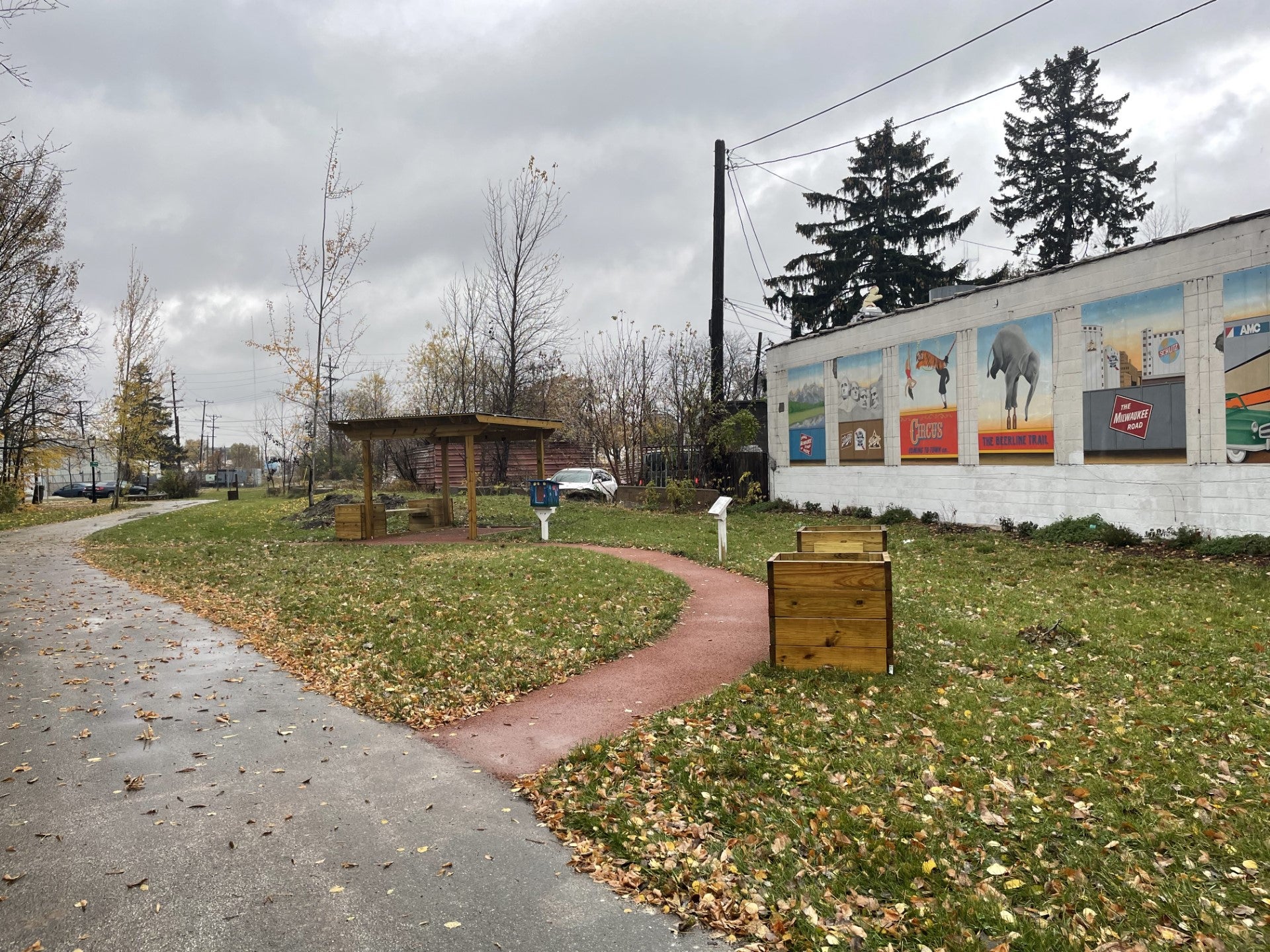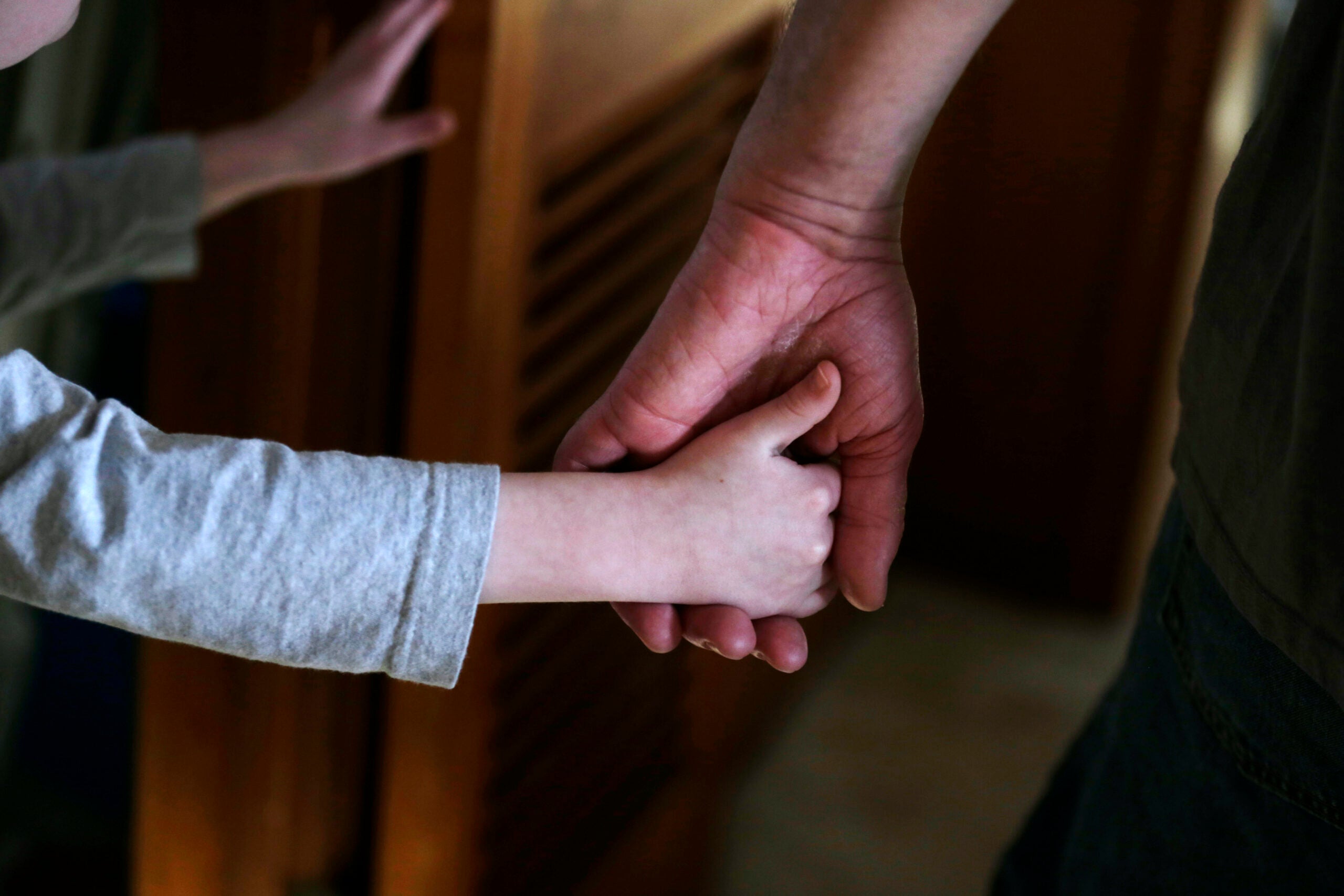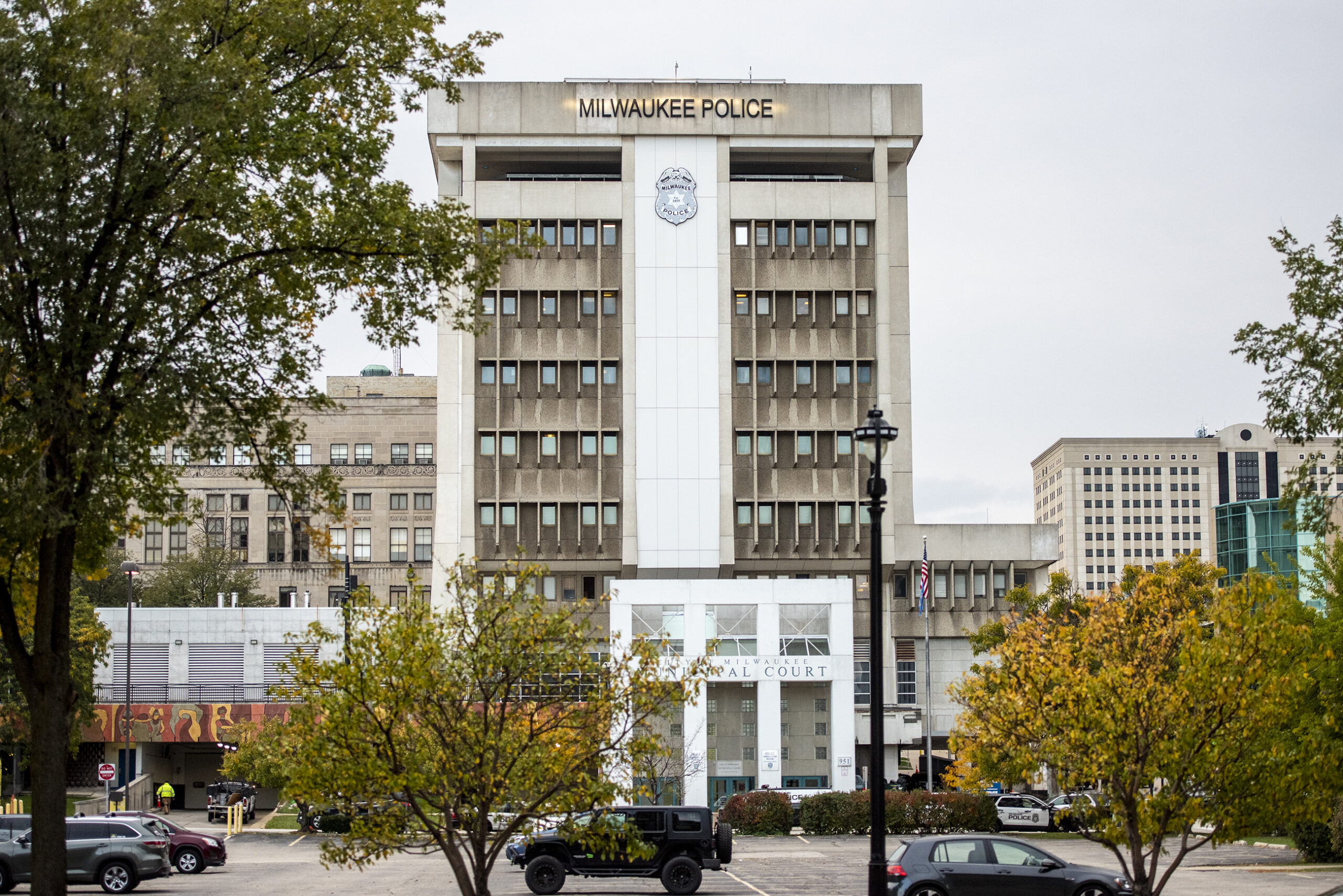There’s no shortage of negative news in Milwaukee. The segregation. The extreme racial disparities in incarceration rates and employment. The lead pipe dilemma. But today, we’re going to talk to people who have devoted their lives and work to making the city they love a better place. These local leaders have all received Milwaukee Awards for Neighborhood Development Innovation (MANDIs) for their work improving their community’s aesthetics, making job training and education more accessible, eliminating a food desert and more.
Featured in this Show
-
Winners Of Milwaukee Awards For Neighborhood Development Urge Collaboration Among Leaders
Four local leaders working hard to make Milwaukee a better place to live were recently honored with Milwaukee Awards for Neighborhood Development Innovation.
The awards recognize community members’ achievements in revitalizing neighborhoods and strengthening communities. A common theme among four of this year’s winners was the importance of collaboration.
“The award represents not just how great we are as organizations, but really punctuates that organizations need to work together,” said Mark Kessenich, CEO and president of WRTP/BIG STEP, one of the award recipients. “You do not solve issues of racial segregation and unemployment by singular organizations or heroes.”
The organizations speak directly to the issues of racial disparity in the community, and empowering residents with the resources and skills to build better lives, he said.
“The intent of this whole collaboration is to get at that issue … those gaps in terms of skills and education and competency are lingering and structural,” he said.
Issues of race run deep in Milwaukee. Wisconsin has seen the highest graduation gap in the nation between black and white high school students for three consecutive years, and the unemployment disparity in Milwaukee is severe – 14 percent for African-Americans versus only 3 percent for white residents, according to the National Urban League Annual State of Black America 2017 report.
“We have to create a platform where the whole discussion is not about the big businesses in Racine and Kenosha … What’s going on on the far South Side and the far North Side where we don’t have to wait on anybody,” said Kalan Haywood, owner Haywood Group, LLC. “We can partner together and find out who can be assets to our dreams and actually start to implement them.”
The winners of the MANDIs are optimistic that the work they are doing with their organizations, along with other local organizations, will continue to improve the livelihood of residents, but the “all hands on deck” attitude is critical, he said.
“Whether it’s the faith-based community, the entrepreneurs, the politics, the big businesses, we all have to find a way to get out of the silo mindset,” Haywood said. “That mindset is the biggest detriment we have to moving forward … what we have to change is the narrative and the mindset and until we do that we’re going to be stuck.”
Here are four of the winners and their organizations:
WRTP/BIG STEP and Literacy Services of Wisconsin (Mark Kessenich and Holly McCoy)
The partnership between the two organizations created a program that gives participants in eight locations around Milwaukee the opportunity to connect a high school equivalency program with training in the construction trade.
“The really innovative part of this partnership is that we’ve taken a sequential learning experience and integrated together,” Kessenich said. “On the construction side of it, people need their high school diploma, so the partnership … is really powerful because they can do that all together in one program design.”
Students who participate in the program are expected to do about 320 hours of work over a 16-week period, according to Holly McCoy, senior director of programs at Literacy Services of Wisconsin. Of those hours, 120 are devoted to preparing students for work in the construction industry and for apprenticeship programs.
“Really it’s about the quality of the education, not the quantity,” McCoy said. “We’re really trying to change the way our adult students are learning and make those connections … between the educational pieces as well as the construction trades. It’s really a great holistic approach.”
Haywood Group, LLC (Kalan Haywood)
Kalan Haywood’s development company was recognized for its instrumental role in bringing Pete’s Fruit Market — a 15,000-square-foot fresh meat and produce market — to a former food desert in the Bronzeville neighborhood of Milwaukee.
He also bought the historic Germania building in downtown Milwaukee in 2014 and converted it into an apartment building that split the units equally between high-end market residents and affordable housing residents.
“Think about how important it is for a young boy or girl who gets up to go to school and may be on the elevator with a doctor or lawyer, and that close inhabitation and exposure I think will be game changing,” he said.
Layton Boulevard West Neighbors (Jonatan Zuñiga)
For his part, Jonatan Zuñiga, community outreach manager, reaches residents of Milwaukee at an even more personal level — their front door — through the Block Project Menu program on the South Side of Milwaukee.
The goal of the program is to break through barriers of language and culture to connect residents of a neighborhood with each other, and show how a community can work together to improve their neighborhood, Zuñiga said. Residents of Burnham Park, Layton Boulevard and Silver City have accomplished this through initiatives that include neighborhood flags and exterior lights.
“It’s not about the actual project, but about the process and the result,” he said. “Everyone pitches in for the projects, both time and money.”
Episode Credits
- Kate Archer Kent Host
- Colleen Leahy Producer
- Kalan Haywood II Guest
- Mark Kessenich Guest
- Jonatan Zuñiga Guest
- Holly McCoy Guest
Wisconsin Public Radio, © Copyright 2024, Board of Regents of the University of Wisconsin System and Wisconsin Educational Communications Board.

